Six tips for talking to your child about Covid
As Covid-19 cases surge, three experts reveal how parents can help their children understand how the pandemic affects them.
As Covid-19 cases surge across Australia, school holiday plans have been decimated and more states have been plunged into lockdown.
For many children, the stress of Covid-19 and how it is affecting their lives is real.
But how do we talk to our kids about Covid-19 and ensure they have the right information without causing them stress?
Three Australian experts – parenting expert Justin Coulson, early learning specialist and neuroscience communicator Jill Sweatman and digital literacy expert Dr Joanne Orlando – give their views on some of the issues parents might be grappling with and the best ways to discuss Covid-19 issues with preschool kids, primary school children and teenagers.
HOW DO YOU DESCRIBE COVID TO A PRESCHOOLER?
Justin Coulson: “Our little people really thrive on predictability, routine and a sense of security. They don’t understand what’s going on, cognitively, no matter how much we speak to them about Covid, they’re not going to quite understand it and whatever we say to them is going to be taken literally.
“They’re involved in what psychologists call pre-operational thinking. They pretty much just take what we say and it becomes their world, they just don’t really ‘get it’.
“So if we were to try and explain what Covid is – it’s a germ and it travels through the air and it gets on you and it gets inside your lungs and some people die from it – that’s just going to freak them out.
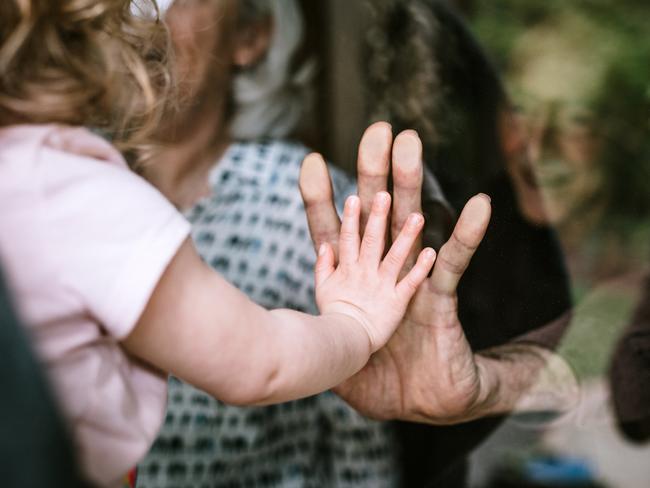
“It’s going to create anxiety, they will think that everyone breathing is going to die, they might be responsible for somebody else’s death.
“The more we try to explain things to our little ones, the greater the anxiety for them.
“So all we need to do for our little kids is make things as secure and predictable as possible.
“Generally, I would say, don’t even talk to them about it. They don’t need to know. They won’t understand and it’s better not to.
“With kids this age we need to take a minimisation approach. They don’t need to know the details, it’s only going to create anxiety for them.
“With our little kids, we just cocoon them. Everyone complains these days about kids – they’re bubble-wrapped and all that stuff. And my response to that is developmentally, that’s the right kind of approach.
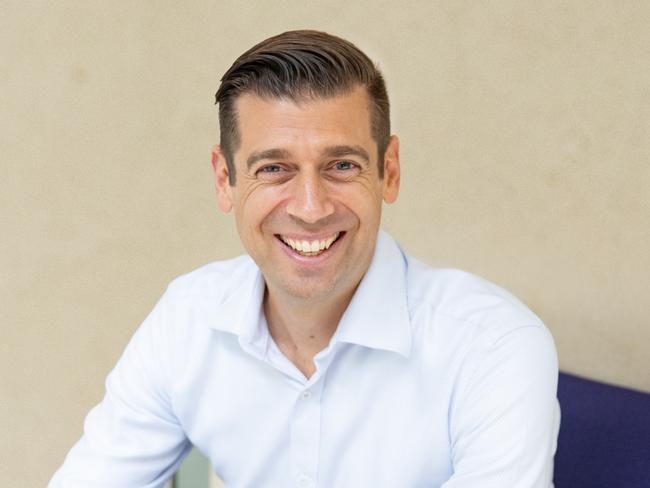
“What we can do, is just encourage them, as a matter of good hygiene, to cough into their elbow and to wash their hands regularly and explain that we wear masks so that people can be healthy – some people have got a cold and we don’t want to get sick.
“And you want to keep is as simple as you can – just don’t go into the details.
“Even if they have got questions, they’re not going to ‘get it’ so it doesn’t make sense to explain this.
Jill Sweatman: “Young children ask questions because they are unsure or scared about their immediate family and surroundings. They will seek what is called a security answer. Not a reality answer.
“For example, they may ask ‘Are you or our family going to die?’
“A security answer could be ‘No darling, you and your parents are healthy and very unlikely to get sick. Yet what we need to do is to take care of our grandparents, neighbours and others in our family and community who may become ill.
‘This is a time when we must think about others, first, which is why we are wearing masks and washing our hands often.
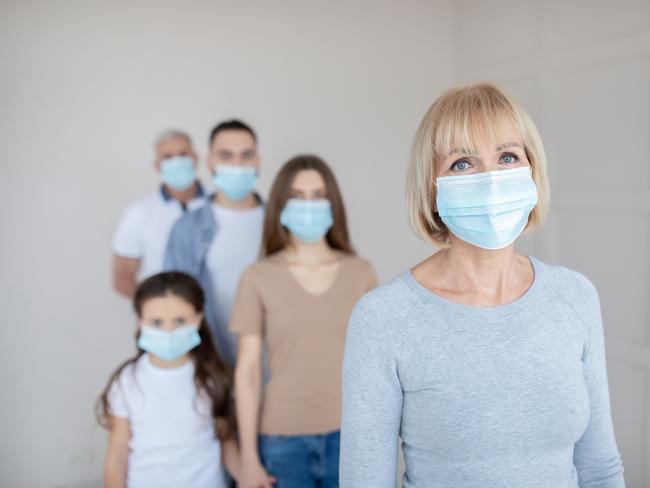
‘By looking after them, we are protecting ourselves even more.’
“ A reality answer would be ‘Well, your grandmother was very sick recently and if she got the virus she would go to hospital for a long time.’
“Encourage your child to phone a grandparent, neighbour or friend every few days to understand the purpose of why they are taking precautions. This will develop confidence and a sense of empathy and community.
“You do not want to catastrophise and frighten a child, what you want is to maximise the message so the child understands that the steps we are taking to be safe are important and if we do them then they will in turn be safe.”
MY CHILD IS STRESSED ABOUT REMOTE SCHOOLING
Jill Sweatman: “For every child, establishing a routine is highly important to preserving a sense of safety, security and emotional comfort.
A child needs to know that things will still be alright in our family, if we keep diligent about Covid precautions.
“Designing a study routine, keeping up exercise activities, eating at regular times and having contact via phone or internet with friends and where possible their school are very important.
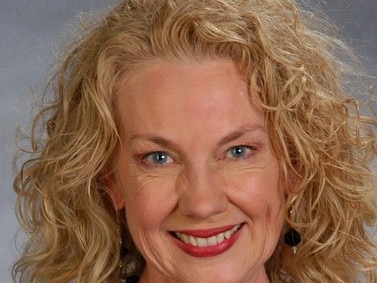
“Schools are much better prepared for the disruption than they were at the beginning of the virus, so connect with your school and get help where your child needs it.
“Remember to check-in with your children, ask them if they are ok, encourage them to share how they are feeling. Teenagers can bottle up emotions and at times of high stress that can be
dangerous, so make sure that you are communicating with your teen.
“If you do become concerned about how they are coping, or the stress they are under, then seek professional help immediately.”
MY TEEN’S GOT INFO ABOUT COVID ON SOCIAL MEDIA
Dr Joanne Orlando: “What we know abut teenagers and tweens as well is that they get the majority of their news from social media platforms.
“Most of them now get the majority of their news from Tik Tok, that’s the main place and also a little bit from Instagram.
“What I have seen in my research is that teenagers and tweens are very much on top of the latest happenings in the world.
“Of course, there are lots of videos on Tik Tok about Covid that come from all over the world.
“So there’s good and bad things there. The good thing is that if the child is using social media platforms, they’re seeing lots of different teenagers’ interpretations and experiences of Covid.
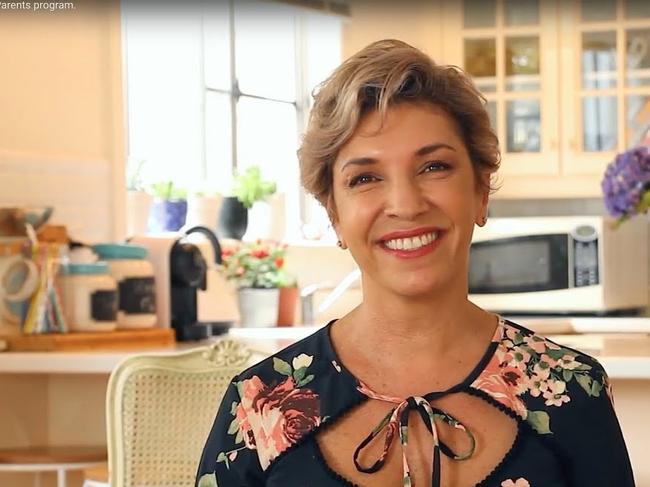
“So in many ways, children get quite a broad experience or understanding of how Covid is playing out.
“But of course, each Tik Tok video or social media post is also designed for maximum engagement.
“So it means there are lots of mistruths, exaggerations with humour brought into it so they’re not necessarily getting accurate views. So that’s a big issue that they may or may not be aware of. But they are likely not aware of it.
“We know that when teenagers are online, their ability to interpret real information from misinformation or advertising is actually very low.
“We think they are quite savvy when it comes to technology but its in those kinds of skills where they are not savvy, their digital literacy skills.
“So what they are getting is kind of a mish mash of information, people’s interpretations, funny things, mistruths. They’re getting a big pot of all kinds of information. So they’re interpreting Covid from that.
Parents or teachers need to guide kids around the kind of source that they are getting their information from.
MY CHILD HAS CONCERNS ABOUT COVID IN SCHOOLS
Jill Sweatman: “Our children, as much as we love them, are still evolving their brains and compassion for others can be something that takes time to develop.
“Family values will play a significant role here, talking to our children about extending kindness to every child, regardless of health is important.
“If we know of a child who has had the virus, explaining what that child has had to go through and the importance of supporting them, getting that front and centre in your child’s mind, will go a long way to easing the threat of bullying.
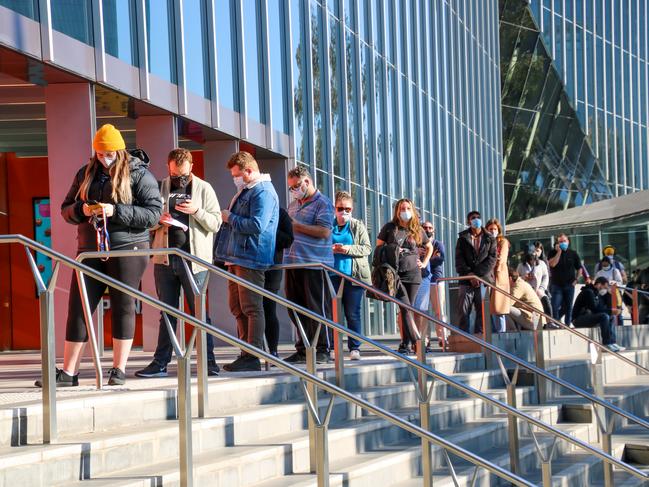
“Of course, if you become aware that your child is engaging in such behaviour, it is important that you correct that immediately by having them understand how they would feel if it was them that was being bullied for being sick.”
Dr Joanne Orlando: “If an individual child gets Covid in a school, it’s really important to protect children – it can be a bit of an open slather on social media.
“Bullying can potentially happen for that child or that child’s family or that child’s best friend. We do know that behind the anonymity of the screen, people can say or do whatever they want and they don’t necessarily use their real names so there’s definitely that potential for a lot of bullying but also a lot of online hate around that child.
“We’ve seen online hate has absolutely exploded online everywhere. People have become incredibly negative and angry – there’s a real shift towards it and children have got into that.
“They are learning this as a way of acting online so they can very easily transfer this to any child or any school that has Covid cases. It doesn’t necessarily stop when a child is over Covid, that can continue for a long time online and also offline.
“Parents need to be sure that they are getting their correct information and it’s really important just to talk with your children about what they’re reading, what they’re seeing about Covid and balance it out.”
HOW DO WE TALK TO PRIMARY SCHOOL KIDS ABOUT COVID?
Justin Coulson: “Between the ages of five to 12 years old, kids move into a phase – psychologists would use the term concrete operational thinking. That word ‘concrete’ is a really great description of what’s going on. Everything’s black and white, everything’s set in stone, everything’s literally concrete to them.
“As they move through primary school, they are able to take on a little but more.
“Research coming out not just from Australia but around the world, shows that as Covid has led to increase in depression, anxiety, suicidal tendencies and child abuse.
“So that data indicates that our kids are being affected by parental and political paranoia.
“Kids are being exposed to information that they don’t need. It’s heightening their anxiety and they’re not responding well to it.
“I would be really sensitive and careful with the kids. They are going to come with questions of curiosity and questions of concern.
“And for children in the 5 to 12 age gap, we need to be discerning as to what they are asking and why so that we can respond in the most helpful way.
If they have got question of curiosity, what we do is give them brief, simple answers and we respond to their questions to the extent that they are curious.
“Some parents, when their kids ask them a question, it’s kind of like they turn on the fire hose.
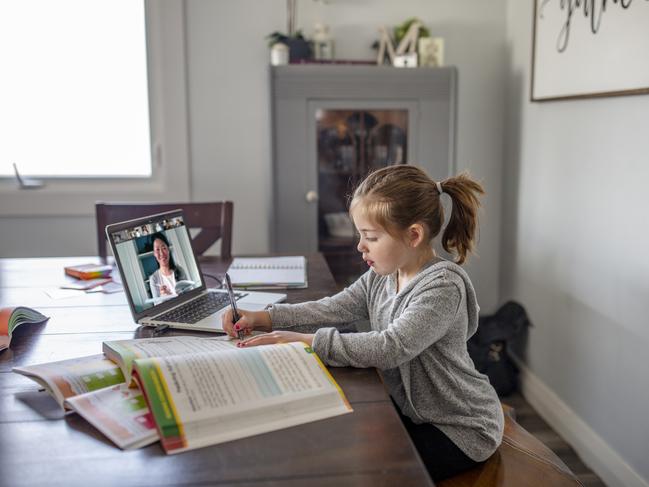
“By recognising that we only need to answer the questions to the extent that they’re curious, that’s going to be the best way to respond to that particular issue.
“Before you start answering their questions, you can ask them ‘what do you think?’ or what do you know?’
“We invite them to share what their perceptions are first and then we can just kind of fill in a few blanks, answer questions until they’re no longer curious and if you’re not sure, don’t be afraid to say ‘I don’t know’.
“Keep the politics out of it. Whether you agree with Gladys or Annastacia, they don’t need the ideology.
“They’ve got a question and they want a straight answer. If you can’t answer it, jump online and say ‘hey, let’s work it out together as I don’t know the answer to that one’.
“By asking them to tell you what they know, their brain is doing the processing, they’re going to me much more engaged in the conversation.
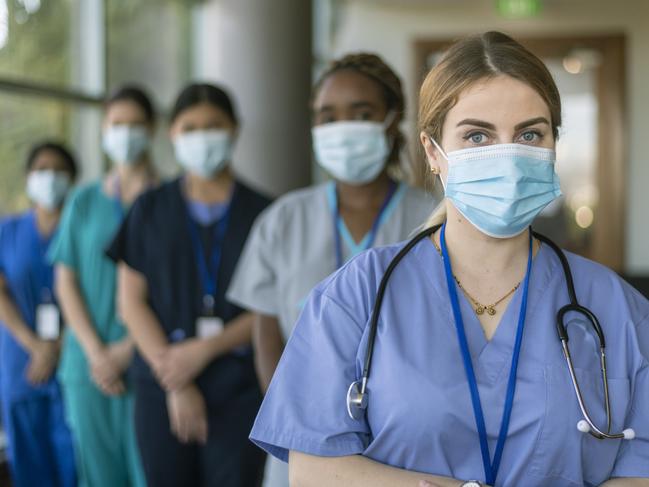
“If they are coming to us because they are not so much curious as really concerned, our job isn’t to solve things or fix tings, which is what we often do or to get logical.
“If they are concerned, there will be a bit of emotion in their voice and their conversation. “The best thing to do if they’re concerned is to reflect back what we are seeing, which is really the opposite of what parents do.”
As parents, we just want to fix it — we’re tired, we’ve got stuff to do. We just want to say ‘that’s life’.
“A more helpful response is what I said to my 14-year-old. She said: ‘It’s unfair, I can’t believe we are locking down, I hate this’.
My response to her was ‘it’s really hard right now’.
“By recognising their feelings, by giving their feelings a name, we’re not actually trying to solve it.”
Jill Sweatman: “Increased rates of anxiety in children, was a major concern prior to the Covid pandemic, with the disruption and fear Covid brings only adding to the anxiety our children are experiencing.
“As a parent, your job is to help ease these stressors and concerns and Covid provides that
opportunity for our children to build an important life skill, that is how to deal with something that is out of their control.
“Let them know the importance of the actions we take, whether it’s wearing a mask, washing our hands, socially distancing ourselves, which are all things that we can do to keep ourselves and other safe.
“Engage them positively in what we can do to stay safe and in doing they are learning a great life lesson that while we cannot personally stop a virus, what we can is keep ourselves and others safe from it. This will help your child not only deal with Covid, but other unsolvable issues from an individual perspective such as climate change or global waste.”
HOW DO I HELP MY CHILD IF THEY ARE NOT COPING?
Jill Sweatman: “Our children crave routine and consistency, Covid has created a world where disruption is the new constant, so it is very important that you are speaking with your children, letting them know that they are safe and that the disruption will only be for a short time.
“When they are home, look to create a routine, schools are fantastic now at keeping the kids
connected to the classroom, so use all the assets that you are given to normalise what is abnormal as much as you can.”
“Keep in mind that children are more aware than we realise, they watch everything we do,
especially when we think they aren’t paying attention. Their brains are attuned to tone of voice, and they watch and monitor their parents’ faces, able to detect if things are not right.”
“Which makes it important to remember that it is not only what we say that matters, but how, when and where we say it.
“When discussing a sensitive issue with a young child, place them on your lap or give them a cuddle.
“Avoid distractions like digital devices or other activities that may get in the way of choosing the right words. Let them know you have their full attention, and that you are the one providing protection.”
“Children seek safety and protection from their parent and your goal is to ensure that in answering their questions that at the end of the discussion they feel safe and secure.”
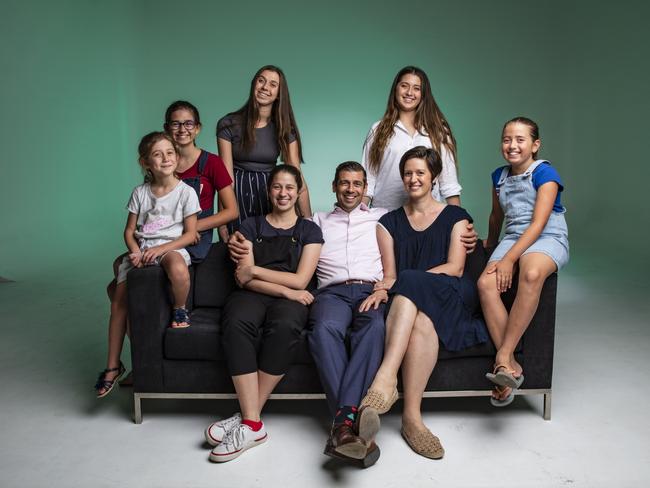
Justin Coulson: “Try to take the pressure off your family so that you can be present for them.
“Obviously, the kids are going to want to resume their regular routines but now they can’t do a whole lot of things because of lockdowns, and so we jut say we’re having a couple of weeks off, we’re just going to be together as a family, and to the extent that you can, be present.
“Bake, play games, get out in the backyard. As long as you are doing things in a Covid-safe way and following government guidelines, either go to the playground or have friends over.
“Keep the kids active, keep them engaged, minimise their passive consumptions of screens, while also recognising that sometimes everyone needs a break and it’s not the end of the world if they end up watching a bit of extra TV or spend a bit of extra time on screens.”
Originally published as Six tips for talking to your child about Covid



